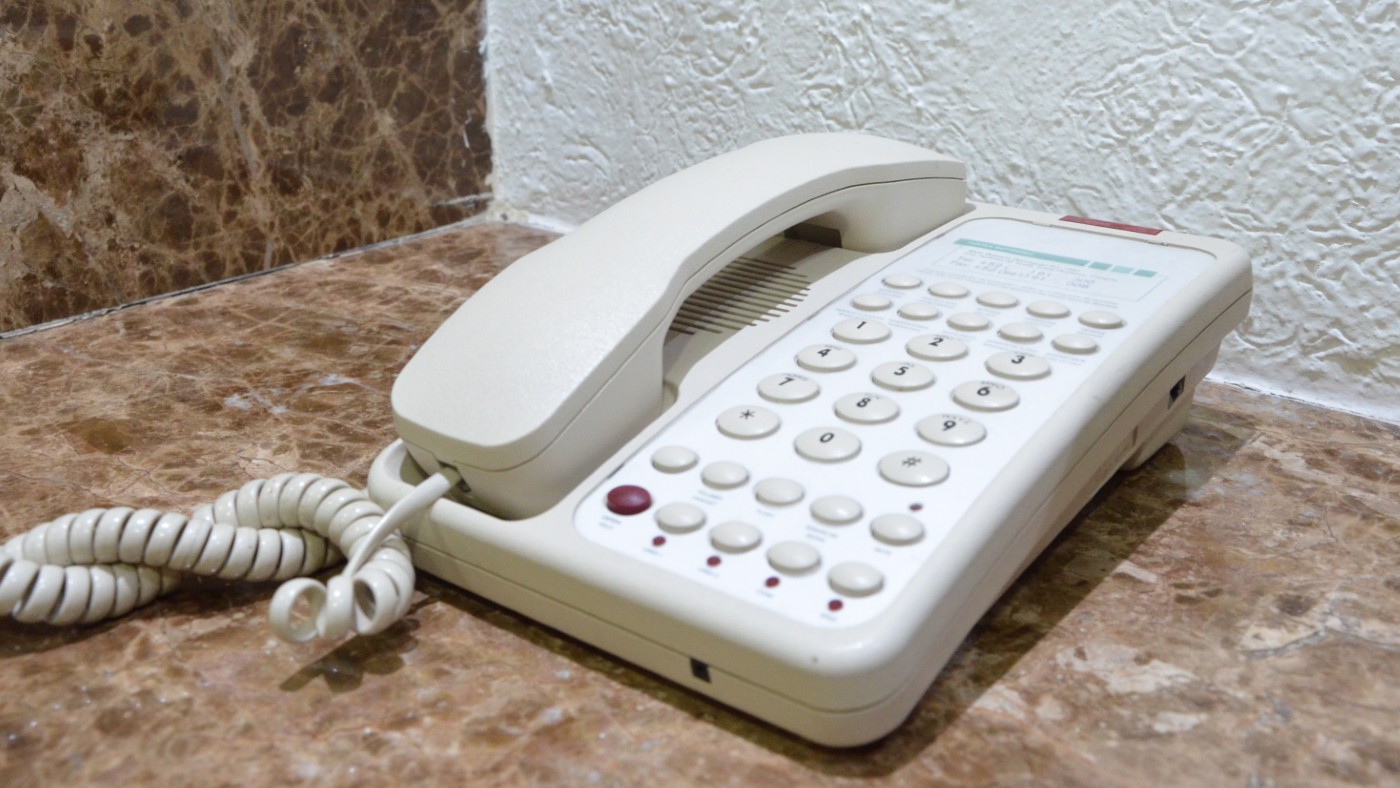Phone users hang up their landline in favour of mobile and video calls
UK economy ‘roars’ back, Ikea to invest £3.4bn in renewable energy, and other breaking business news

A free daily email with the biggest news stories of the day – and the best features from TheWeek.com
You are now subscribed
Your newsletter sign-up was successful
1. Is this the end of the landline?
Telecoms
Use of landline telephones in the UK has fallen dramatically with more than four million households disconnecting altogether since 2000, according to research by price comparison site Uswitch.
More than a quarter of households, roughly five million, say they never use their landline for phone calls. And even with millions of people stuck at home during lockdowns, landline use dropped as consumers opted to use mobiles and make video calls via apps such as Zoom and Houseparty.
The Week
Escape your echo chamber. Get the facts behind the news, plus analysis from multiple perspectives.

Sign up for The Week's Free Newsletters
From our morning news briefing to a weekly Good News Newsletter, get the best of The Week delivered directly to your inbox.
From our morning news briefing to a weekly Good News Newsletter, get the best of The Week delivered directly to your inbox.
The survey of 2,000 people revealed that during lockdown 15% were using landlines more than before, while 27% said they were using it less. “One common problem is calls from scammers and salesmen,” the BBC says.
There is a big generational divide when it comes to landline use. Up to 95% of over-65s still have one, compared to just 52% of 18 to 24-year-olds.
2. Reopening off to a ‘roaring start’
Economy
The reopening of non-essential shops and outdoor hospitality in England on 12 April has given the UK’s battered economy a huge boost following a boom in spending. Economists from Deutsche Bank said the reopening is off to a “roaring start” and Barclays analysts say early indicators suggested a “sharp uptick in activity”, Yahoo! Finance reports.
A free daily email with the biggest news stories of the day – and the best features from TheWeek.com
“It’s clear that we’re in for a strong Q2 bounce,” said Deutsche Bank’s chief UK economist Sanjay Raja. “High-frequency data has shot up since the UK entered the second stage of its lockdown exit.”
Talking points: the great reopening
3. Millions return to gyms but industry body calls for more support
Companies
Gyms in England also reopened last week with millions of people returning for their post-lockdown workouts. The easing of restrictions saw more than one million workouts take place at PureGym’s 240 sites while David Lloyd Leisure said footfall in its English clubs had been “extremely positive”, the BBC reports.
Despite the positive reopening, not-for-profit industry association ukactive has warned that the gym sector will need government support after suffering huge losses during the past year. “Thousands of facilities still require greater financial and regulatory support in order to recover,” said ukactive chief executive Huw Edwards.
4. Ikea goes green with £3.4bn renewable energy investment
Retail
Ikea is planning to invest an extra €4bn (£3.4bn) in renewable energy by 2030. By the end of the decade the Swedish retail giant will build wind and solar farms, while fitting its stores with electric vehicle charge points, The Guardian reports. The fresh investment will take Ikea’s clean energy spending past €6.5bn (£5.6bn).
“We are in the most important decade in the history of humankind,” said Jesper Brodin, chief executive of the Ingka Group, which owns most Ikea stores. “We know that with the right actions and investments we can be part of the solution and reduce the impact on the home we share – our planet – while future proofing our business. For us, it is good business to be a good business.”
5. Airlines set to lose $48bn in 2021 - $10bn more than predicted
Aviation
The International Air Transport Association (Iata) has warned that airlines stand to lose $48bn (£34.4bn) in 2021 because of the Covid-19 pandemic - that’s $10bn (£7.2bn) more than previously predicted in December.
The “downward pivot” comes as airlines contend with new travel bans and restrictions arising from outbreaks in large aviation markets, Bloomberg reports. Willie Walsh, Iata’s director general, said the crisis is “longer and deeper than anyone could have expected” and while losses will be reduced from 2020, “the pain of the crisis increases”.
Mike Starling is the former digital features editor at The Week. He started his career in 2001 in Gloucestershire as a sports reporter and sub-editor and has held various roles as a writer and editor at news, travel and B2B publications. He has spoken at a number of sports business conferences and also worked as a consultant creating sports travel content for tourism boards. International experience includes spells living and working in Dubai, UAE; Brisbane, Australia; and Beirut, Lebanon.
-
 How to Get to Heaven from Belfast: a ‘highly entertaining ride’
How to Get to Heaven from Belfast: a ‘highly entertaining ride’The Week Recommends Mystery-comedy from the creator of Derry Girls should be ‘your new binge-watch’
-
 The 8 best TV shows of the 1960s
The 8 best TV shows of the 1960sThe standout shows of this decade take viewers from outer space to the Wild West
-
 Microdramas are booming
Microdramas are boomingUnder the radar Scroll to watch a whole movie